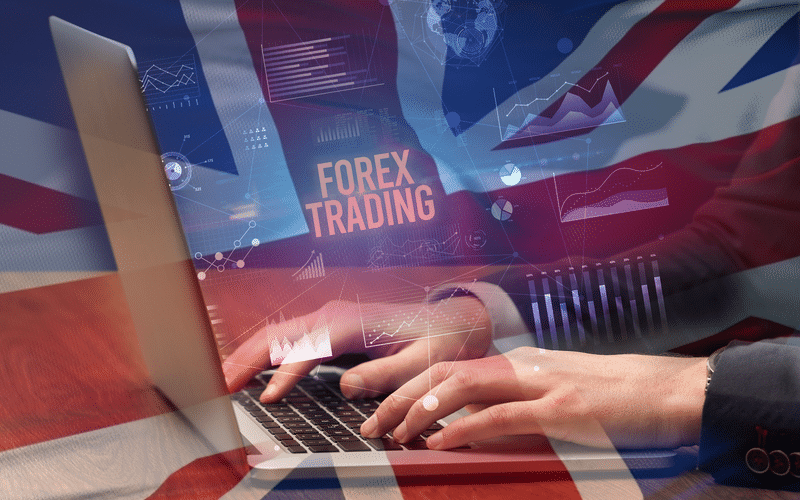
Forex trading is a popular way of making money online. It involves buying and selling currency pairs through a forex broker. The practice has millions of traders globally who use their computers and smartphones to trade. In this article, we will look at how forex trading works and your guide to trade it in the UK.
How forex trading works
Foreign exchange (forex) trading is the process of predicting the future direction of a currency pair. That’s because the exchange rate of most currencies is not always static. For example, the exchange rate of the British pound against the US dollar can be 1.3000 today and 1.4000 tomorrow. Therefore, forex trading involves predicting whether the currency pair will rise or fall in a certain period.
Traders use several techniques to make this prediction. For example, some specialize in fundamental analysis, which is the process of using economic data and news to predict the direction of the currency pair. If you expect that the Bank of England (BOE) will hike interest rates, then you can buy the British pound.
Forex traders also use several chart analysis methods like technical analysis and price action. These methods involve using several tools like the Bollinger Bands and MACD to predict the direction of the market.
Forex trading is enabled by several entities. The most important one is the broker, which provides the technology and platform that enables trading. Behind the scenes, brokers use several entities like banks and liquidity providers.
Is forex trading legal in the UK?
Some new traders may wonder whether forex trading is legal in the UK. The answer is positive – trading forex is legal in the UK. However, because of the substantial risks involved, it is a highly regulated industry.
The forex industry is regulated by the Financial Conduct Authority (FCA). This is a major regulator that is tasked with coming up with rules and enforcing them. It is also tasked with registering forex brokers and other participants in the industry. Therefore, if you are a UK-based trader, it is important to check out whether your broker is registered and regulated by the FCA.
Before the UK left the European Union completely, many rules enforced by the FCA came from the European Securities and Markets Authority (ESMA). The most comprehensive rules were the Markets In Financial Instruments Directive (MIFID II).
These were the most comprehensive financial regulations in modern times. They affected all companies in the financial industry. For example, the rules banned some financial instruments that were offered by forex brokers, like binary options.
Another important rule that affected the forex industry was the rules on leverage. Before MIFID, brokers could offer unlimited leverage to their customers. MIFID forced them to lower the maximum leverage to 1:30.
The Financial Conduct Authority has embarked on a strategy to align its regulations with those of MIFID after the UK left the European Union. Still, there are expectations that some of those rules will be left intact.
Forex brokers in the UK
London is the financial capital of the world. As a result, the city is home to all types of financial services providers. Since the UK is a major market for forex brokers, many companies have established headquarters in the country. Indeed, some of the biggest UK forex brokers are public companies that are listed on the London Stock Exchange (LSE).
For example, IG Group is a leading UK forex broker that is valued at more than 4 billion pounds. It has an annual revenue of more than 860 million pounds. Another listed UK forex broker is CMC Markets, which is valued at more than 1.2 billion pounds. It has an annual revenue of more than 460 million pounds. Plus500 is also publicly traded and has a market capitalization of more than 1 billion pounds.
In addition to these publicly traded companies, there are hundreds more local and international companies that offer brokerage services.
How to start forex trading in the UK
Now that you know that forex trading is legal in the UK, the next thing you should know is how to start trading. You should follow a few steps when you are starting your trading journey.
First, you should find a good forex broker. Since there are many brokers offering these services in the UK, we recommend that you work to find one who is regulated and affordable. Before you use a broker, do a search on the FCA’s website to see whether they are regulated.
After this, find their pricing model to see whether they are affordable. As you will find out, many brokers don’t charge a commission to trade. They make money by charging a spread, which is the difference between the bid and ask price. Find the one with the tightest spreads.
Second, learn about trading and use a demo account. After finding a good broker, you should now start learning about the industry. Fortunately, there are many materials available on the internet about forex trading. Taking time to learn will help you avoid making substantial losses.
Third, you should come up with a trading strategy. Some of the strategies you could use are scalping, copy-trading, automated trading using bots, and swing trading. You should spend a few months learning and testing your forex trading strategy before you move to a real account.
Finally, you should learn about forex taxes in the UK. There are basically two classes of forex taxation in the UK. First, there is speculative trading where one is not required to pay any taxes to Her Majesty’s Revenue and Customs (HRMC). Second, if you are a self-employed person trading full-time, then you are supposed to pay business taxes.
Summary
Forex trading is a common part-time job for many people in the UK. In this article, we have looked at how it works and some of the biggest forex brokers in the country. We have also looked at the process of starting forex trading in the UK and how you should handle your taxes.








Leave a Reply